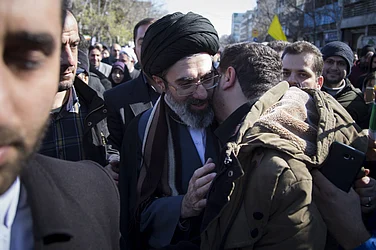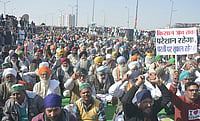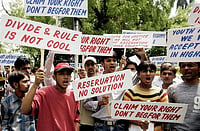In recent years, the Rohingya community of Myanmar has become the face of the stateless refugees escaping persecution in their homeland.
While no formal records exist as they are not counted as citizens, estimates suggest that there are over 1 million Rohingyas in Myanmar and around 1 million could be dispersed abroad as refugees and migrants. Bangladesh alone has over 900,000 refugees in the city of Cox Bazaar where 33 camps have come up over the years.
The Rohingya crisis is fuelled by state persecution and decades of insurgency carried out by elements from within the community. Hundreds of thousands of Rohingyas have fled the country over the past decade as more and more legal restrictions have been imposed on them and Myanmar's military has conducted brutal crackdowns in which it has been accused of killing civilians, raping women, and razing down entire villages.
As for the Rohingya insurgency, while some have seen it as an Islamist movement since Rohingyas and their leaders are predominantly Muslim and have used Arabic in their publicity material, the conflict remains an ethnic one between the Rohingya minority and the Buddhist majority of the country.
Here we explain who Rohingyas are, what's driving their exodus from Myanmar, and the ways in which Myanmar's authorities have persecuted them.
Who are the Rohingyas?
The Rohingyas are an ethnic minority of Myanmar, most of whom are Muslims. They mostly live in the Rakhine state, which has also been called Arakan in the past.
While Rohingyas identify themselves as a distinct ethnic minority, Myanmar's government rejects it and instead considers them Bengalis. It has denied them citizenship and only grants citizenship if they identify as Bengalis.
Since Rohingyas are not considered citizens, they don't have rights and liberties otherwise available to citizens. Even though electoral democracy briefly returned to Myanmar in 2015, Rohingyas numbering over 1 million were not eligible to vote.
The Rohingya-Buddhist conflict in Myanmar is not new. It is as old as the founding of the post-colonial Myanmar (formerly called Burma). Shortly after Myanmar declared independence in 1948, Muslims in Rakhine rebelled for equal rights and the insurgency was crushed by 1954 and a ceasefire came into place, according to a backgrounder by the think tank Center for Strategic and International Studies (CSIS), which adds the majoritarian attitude towards Rohingyas hardened over the years.
"Myanmar’s military coup in 1962 hardened the government’s stance toward religious and ethnic minorities, and the Rohingya Muslims in Rakhine State in particular were again repressed. In 1982, the Rohingya were stripped of their citizenship and categorized as 'non-nationals'," says the CSIS backgrounder.
In the 1970s, sections of the Rohingyas restarted the insurgency. The current insurgency is helmed by a group called Arakan Rohingya Salvation Army (ARSA), which was formed in 2013 when its chief Attullah Abu Amar Jununi declared it from Saudi Arabia with support from Saudi donors and emigres.
The Associated Press notes that decades of institutionalised discrimination, including refusal to consider them citizens and grant them basic rights, helped fuel the seeds for ARSA's formation. It also noted that there have also been incidents of majoritarian violence against the community.
"Analysts blame Myanmar's government for the conditions that led to the group’s creation. Successive governments in the predominantly Buddhist country have denied the Rohingya basic rights and citizenship, deeming most of them to be foreign invaders from Bangladesh, even though Rohingya have lived in Myanmar, also known as Burma, for generations...The lack of a political solution to their plight, particularly after anti-Muslim violence in 2012 displaced more than 120,000 Rohingya, helped sow the seeds for armed rebellion," notes AP.
How has the Rohingya crisis worsened in recent years?
While the majoritarian persecution of Rohingyas had been going on for decades, it took a turn for the worse in 2012. A series of Rohingya-Buddhist clashes caused several deaths and led to tens of thousands of Rohingyas to flee to neighbouring Bangladesh, Malaysia, Thailand, and Indonesia. Around 200,000, most of them Rohingyas, were also displaced internally within their native Rakhine state.
In 2017, Rohingya militants mounted large attacks that killed dozens, including several security forces personnel. The attacks led to a brutal crackdown by Myanmar's military, which included raids on villages and alleged razing of entire villages and sexual assaults of women.
The medical charity MSF says that at least 6,700 Rohingyas, including at least 730 children under the age of five, were killed in the month after the violence broke out. Separately, Human Rights Watch (HRW) cited satellite imagery analysis to report that 288 villages were partially or totally destroyed by fires in Rakhine after the violence broke out.
The United Nations High Commissioner for Refugees (UNHCR) says that more than 742,000 Rohingyas fled to Bangladesh after the 2017 violence. Today, over 900,000 Rohingyas are estimated to be in Bangladesh, most of them in Cox Bazaar's 33 refugee settlements. The violence has not stopped as internal displacement has continued since 2021 when a civil war began in Myanmar following the military coup that overthrew the civilian government.
"Armed clashes across Myanmar have continued to trigger displacement, bringing the total number of internally displaced people (IDP) within the country to more than 1.8 million — including 1.5 million of whom have been internally displaced since February 2021," says UNHCR.
How are Rohingyas persecuted in Myanmar?
Besides the obvious issue of denial of citizenship and basic rights along with systemic violence, the Rohingyas are persecuted in a number of ways.
The think tank Council on Foreign Relations (CFR) lists the following institutionalised ways in which Rohingyas are harassed:
- Rohingya couples in some places are only allowed to have two children
- Rohingyas must also seek permission to marry
- For the purpose of marriage, Rohingyas must provide photographs of the bride without a headscarf and the groom with a clean-shaven face, which conflicts with Muslim customs.
- Rohingyas need the government's approval to change houses or travel out of their township
Radicalisation, armed groups complicate situation
While the general consensus remains that the Rohingyas are a highly persecuted group in Myanmar to the extent that 1 million have been forced to flee for their lives over the past decades in multiple waves, countries hosting refugee populations have also faced issues of radicalisation among the refugee camps. Such a situation has complicated the situation for host countries, such as Bangladesh.
There have been incidents of intra-Rohingya violence over the years that have seen assassinations of multiple Rohingya leaders by rival groups. The lack of economic opportunities and the presence of criminal elements have also made refugee settlements vulnerable to drug issues. In Bangladesh, an official told PTI in 2022 that drug smuggling from Myanmar is a threat to the entire region and authorities seized 1,55,65,244 pieces of the narcotic drug 'Yaba', while 14.8 kgs of narcotic 'ice' and gold seized from Rohingyas in the previous six months alone.
"Rival militant factions, including ARSA, are fighting to control the illegal, yet lucrative, drug and arms trade at the borders of Myanmar and Bangladesh and inside the refugee camps. If the situation worsens, ARSA’s cross-border movement and penetration into the Bangladeshi hinterlands will exacerbate Bangladesh’s struggle to contain the instability on its southeastern frontier," notes Animesh Roul in an article for the think tank Jamestown Foundation.
Moreover, while Rohingyas have faced harassment and killings for decades, Rohingya armed groups have also been charged with killings of minority Hindus in Myanmar. Amnesty International has said its investigation found that the Arakan Rohingya Salvation Army (ARSA) killed up to 99 Hindu women, men, and children and abducted Hindu villagers in August 2017.






















